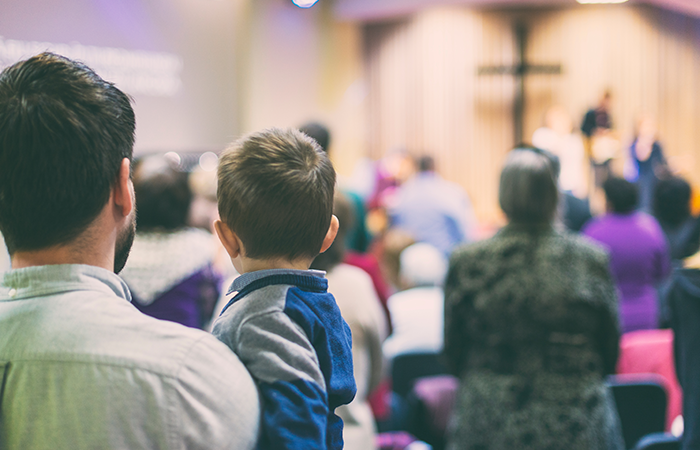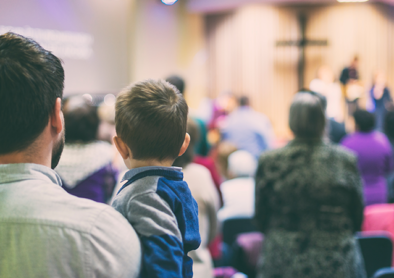WHAT IS THE SOCIAL BREAKDOWN SERIES?

Our relationships are valuable. What we do together matters. Unfortunately, community and family life in the United States have withered. The likelihood births are to married mothers, weekly church attendance, and being generally trusting of others all fell by at least one-fourth between 1972 and 2018.✝
America is suffering from mutually reinforcing crises of social isolation, nonparticipation, and distrust. As individuals, this deterioration has left us lonely, resentful, and without a sense of purpose; as a society, we are wholly unable to locate the common good.
AEI has long recognized the importance of social connection and civil society for promoting social mobility, opportunity, and human flourishing. The Social Breakdown aims to generate renewed attention to the importance of social capital in the lives of Americans and fresh insights on patterns of social poverty.
Facts and Figures
About Our Research
Social connection and participation in civil society are of vital importance for promoting opportunity. The Social Breakdown explores the health of social capital in America and offers fresh insights on social poverty.
Recent Contributions
by Shamichael Hallman
Libraries Are Doing the Work—Let’s Fund Them Accordingly
May 14, 2025
Libraries tell a story—not just through the books on its shelves, but through the people it brings together. Whether through informal social gatherings, intergenerational conversations, or access to essential services, libraries are quietly doing the work of rebuilding trust and strengthening the civic fabric of their communities. And yet, outside the field, too few people realize just how vital and expansive this work truly is.

By Scott Winship
Tax Policy Should Prioritize Shoring Up the Family
January 7, 2025
During the Biden years, tax policy related to the family revolved around the child tax credit (CTC). Attempts to expand the credit to make it easier for two-parent families to have kids and rely on a sole breadwinner were thwarted by objections that a child allowance would also promote single-parent families in which no one worked. Policymakers seeking to use the tax code to help strengthen poor and working-class families should shift their focus to the Earned Income Tax Credit (EITC).

By Rachel Sheffield
HOW STATES AND COMMUNITIES CAN STRENGTHEN MARRIAGES
May 6, 2024
Family is the greatest source of social capital, providing the setting in which people grow, develop, and anchor their lives. Stable and healthy marriages are at the foundation of strong families. Yet a substantial number of Americans have experienced family instability though, due to declining marriage, increased unwed childbearing, and divorce. Although most Americans say they want to get married and value having a good marriage and family life, an ever-increasing number are failing to achieve these goals.

By Bob Smietana
WHY WE ALL RELY ON THE ORGANIZED KINDNESS OF STRANGERS
February 5, 2024
Most of the churches that could be lost due to the “Great Dechurching” are in small communities and in neighborhoods, where they play a vital role in the social fabric—offering places to gather, hosting tutoring programs, food pantries, AA meetings, resettling refugees, offering emergency aid, and in general being the place where people show up when life falls apart.

By Leslie Lenkowsky
A MIDWEST STATE OF MIND
January 17, 2024
Although many now worry that it is endangered, American civil society has long been an important element of what has made the United States an “exceptional nation.” Historian Jon K. Lauck argues that in 19th century America, the surprising epicenter of that civil society turns out to have been the Midwest, a region frequently derided by the literati and others as close-minded and unenlightened

By Kim Parker
FAMILY’S PLACE IN AMERICA’S SOCIAL FABRIC
November 13, 2023
The family is arguably the most basic building block of community life. But even as Americans continue to say their own families are centrally important in their lives, family life in the United States more broadly has changed dramatically in recent decades. At the same time, adults are finding satisfaction in their relationships with friends and coworkers. Many say having close friends and an enjoyable job are the keys to a fulfilling life.

By Johannes Stroebel and Theresa Kuchler
MEASURING THE GEOGRAPHY OF SOCIAL NETWORKS
November 8, 2023
Data from online social networking services provides a unique opportunity to measure the structure of real world social networks and variation in measures of social capital across locations. The publicly available Social Connectedness Index is a great example of the power of these data sources, providing rich information that allows researchers to better understand both the determinants and the effects of the spatial structure of social networks.

By Colin Woodard
THE ULTIMATE SOCIAL CAPITAL: A STORY TO SAVE THE UNION
November 1, 2023
That the bonds holding the United States have been weakening has been obvious for more than a decade now. One big picture manifestation of these patterns is our inability to agree on the fundamental terms of our national purpose in a way that can transcend differences that are geographic even as they are ideological. How did we get to this point and what can bring us back from the brink?






